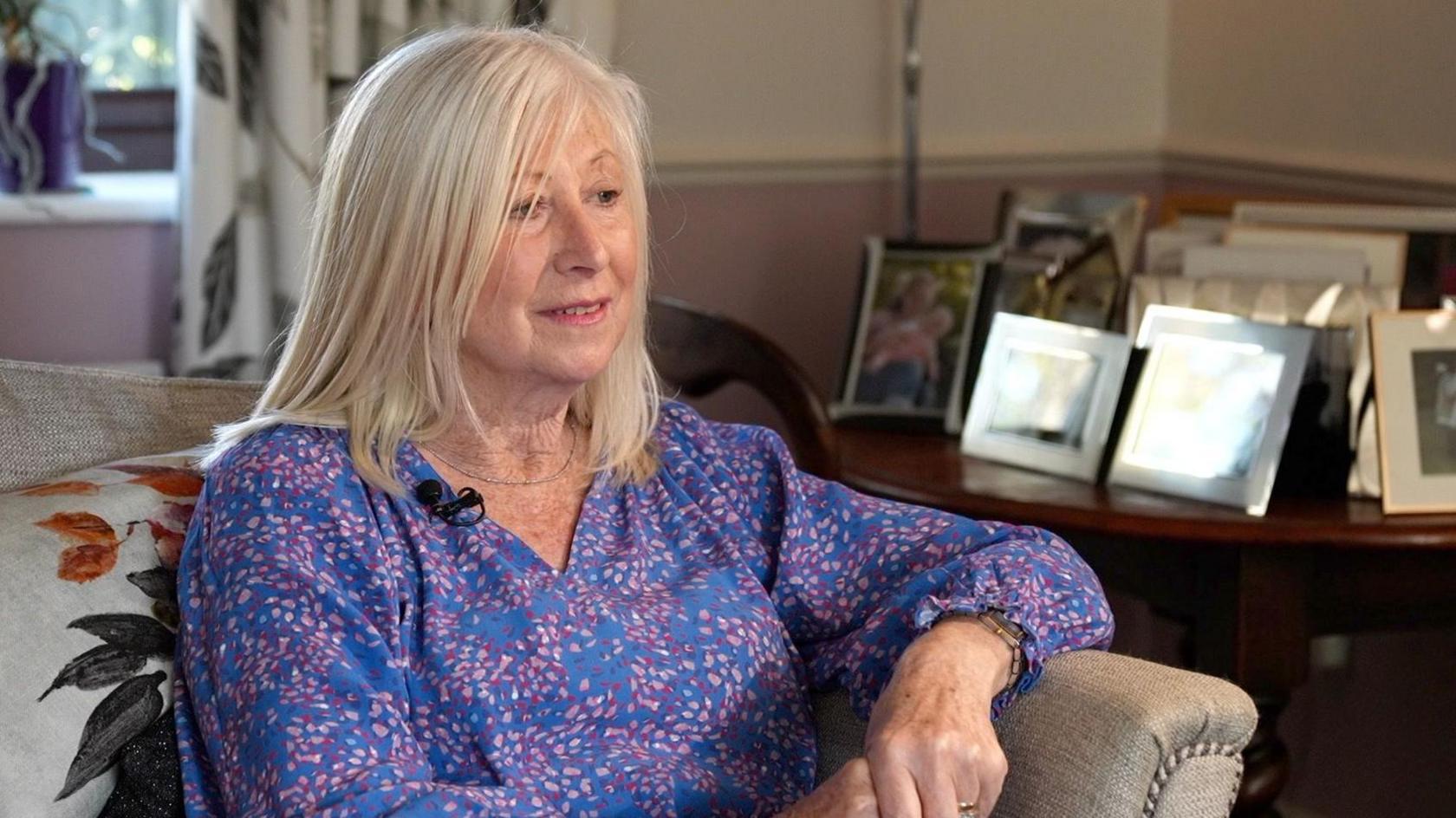Prototype 'to light up' hidden breast cancers
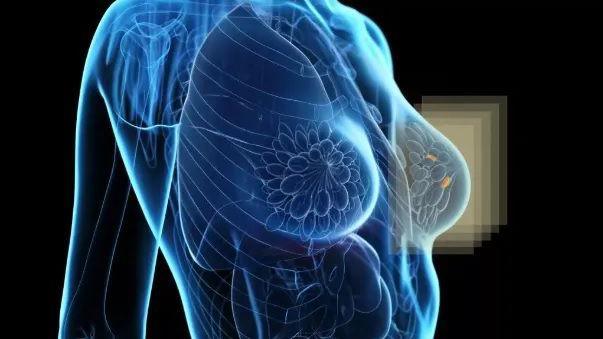
The technology shows cancer more clearly, developers say
- Published
A prototype scanner designed to detect cancerous tumours in women with dense breast tissue could "ultimately save more lives", researchers say.
Dense tissue shows up as white on mammograms, but tumours are also white - so they can be hard to detect.
Developed by technology group Kromek in partnership with Newcastle Hospitals, Newcastle University and University College London (UCL), the new imaging uses a radioactive tracer that "lights up" breast cancers.
The project is set to enter clinical trials once testing is complete.
Dr Nerys Forester, a consultant breast radiologist at Newcastle Hospitals, said "around 40% of women have dense breast tissue, but this only becomes evident when they attend their mammogram".
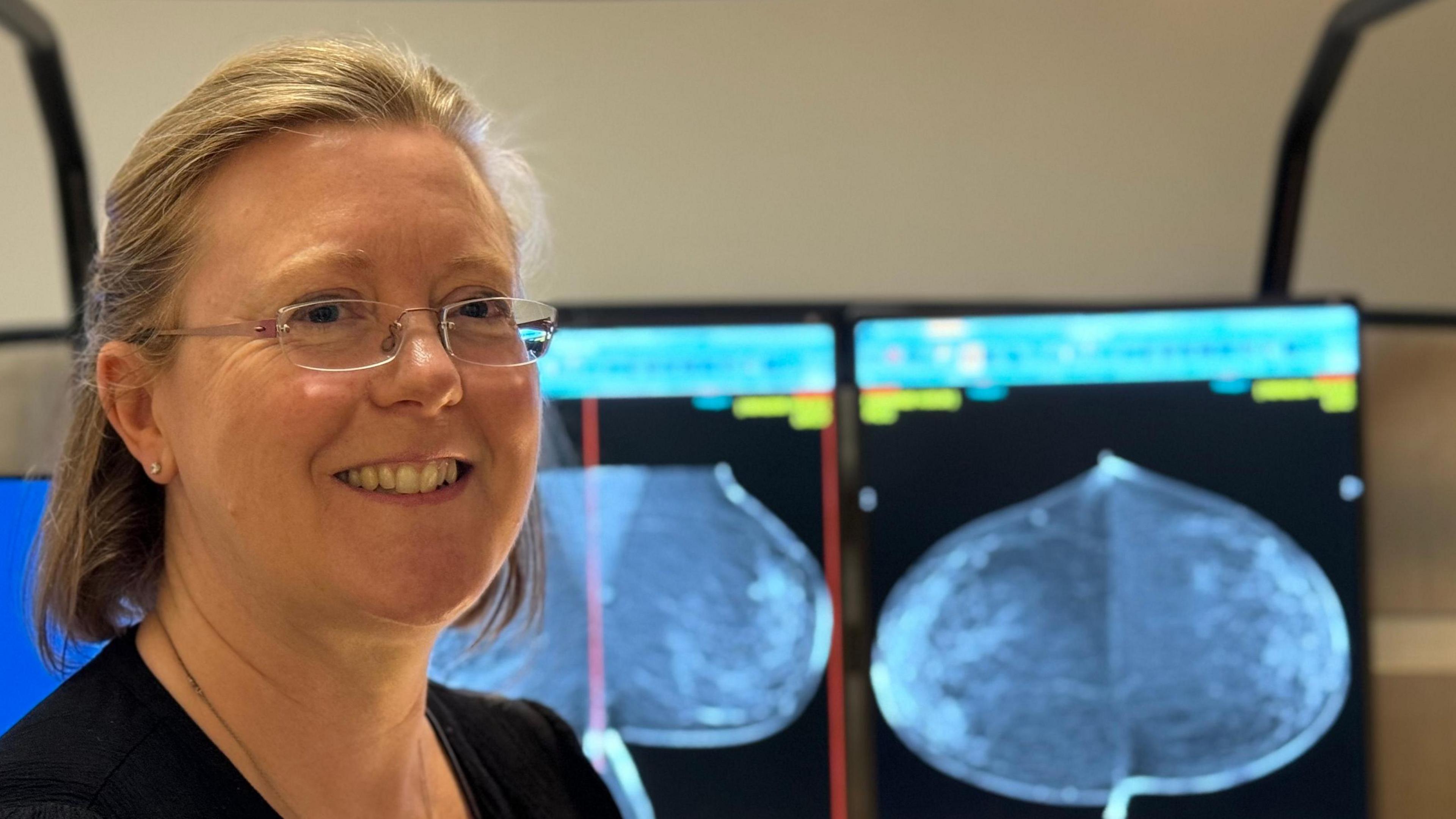
Dr Nerys Forester hopes the prototype could "ultimately save more lives"
She said it was not usually a cause of concern as screening with mammogram was effective, but "women with dense breast tissue do have a slightly increased risk of getting breast cancer".
When breasts are very dense they show up on a mammogram as white, she said, "so we are looking something white in the midst of potentially a lot of white tissue".
It is often described as "looking for a little white cloud in a cloudy sky".
Dr Forester said new technologies to improve the detection of cancer in dense breasts was "really important" and she was delighted with progress of the new prototype since the project began in 2022.
"Our hope is that this technology could ultimately save more lives lost to breast cancer in the future," she said.
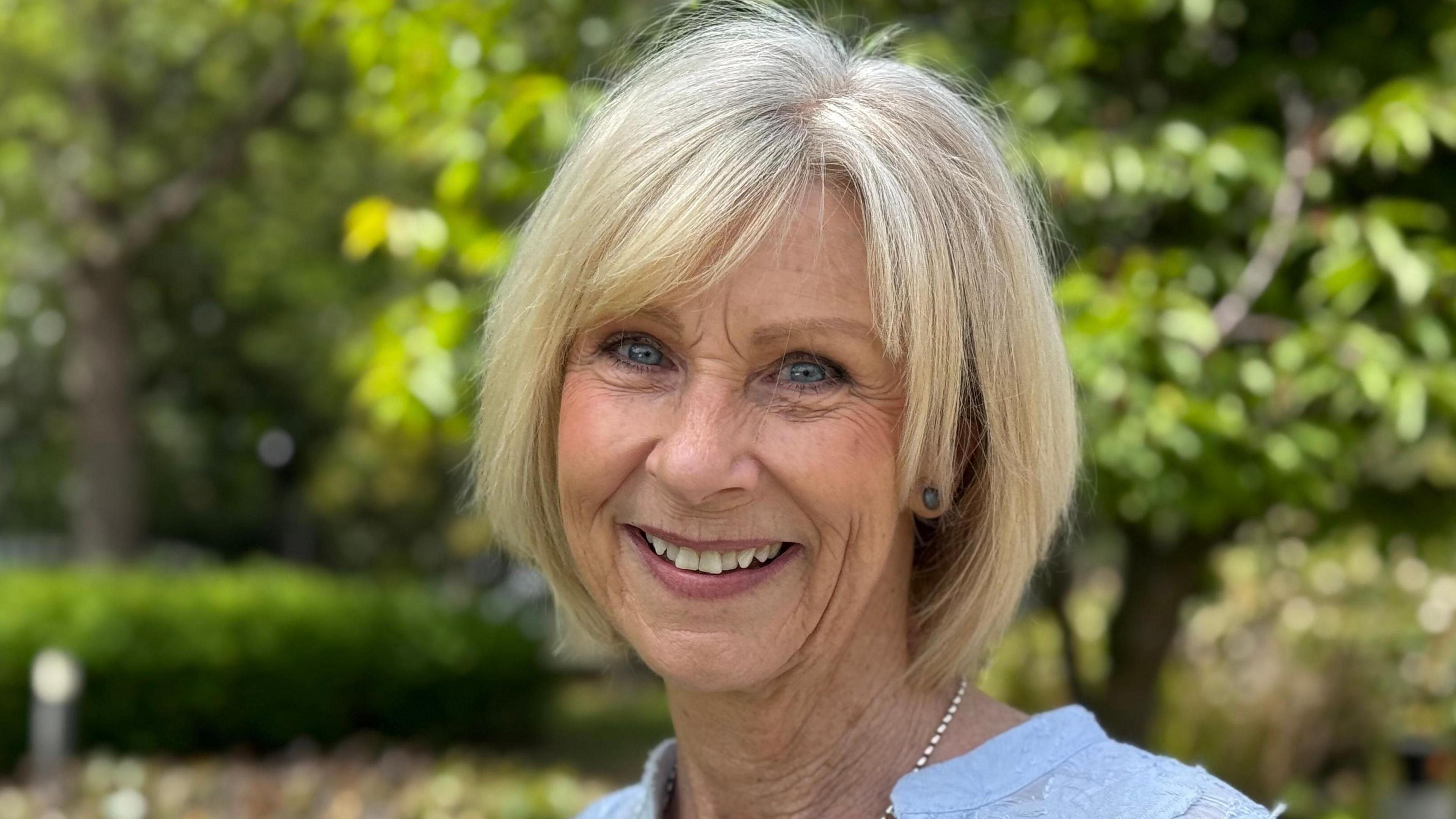
Aly Murphy said the prototype detector was "absolutely exciting"
Aly Murphy, a nurse and breast cancer patient, has been involved in the research, which she describes as "thrilling".
The 65-year-old said she found out by accident that she had dense breast tissue and believes it is possible her cancer could have been missed previously.
She describes the project as "pushing the boundaries of screening, and that's what we really need to do".
"I find it absolutely exciting. I think it's revolutionary."
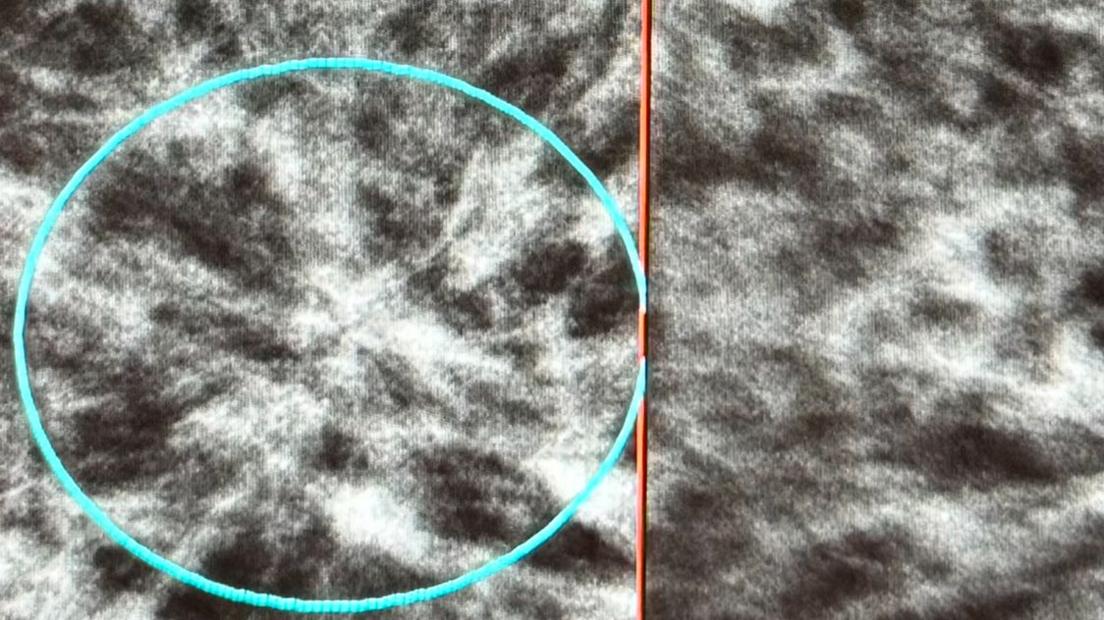
Tumours - such as the one circled - can be hard to detect in dense breasts
Technology company Kromek, based in Sedgefield, County Durham, holds contracts with the Ministry of Defence supplying nuclear radiation detectors.
Chief executive Dr Arnab Basu hopes his machine will also detect these difficult-to-diagnose breast cancers.
"It is very similar to nuclear medicine in other parts of diagnostic imaging," he said. "The patient will be injected with a tracer that is designed to deposit on cancer cells."
He said the technology allowed laser focus on the cancer cells, and they "literally light up".
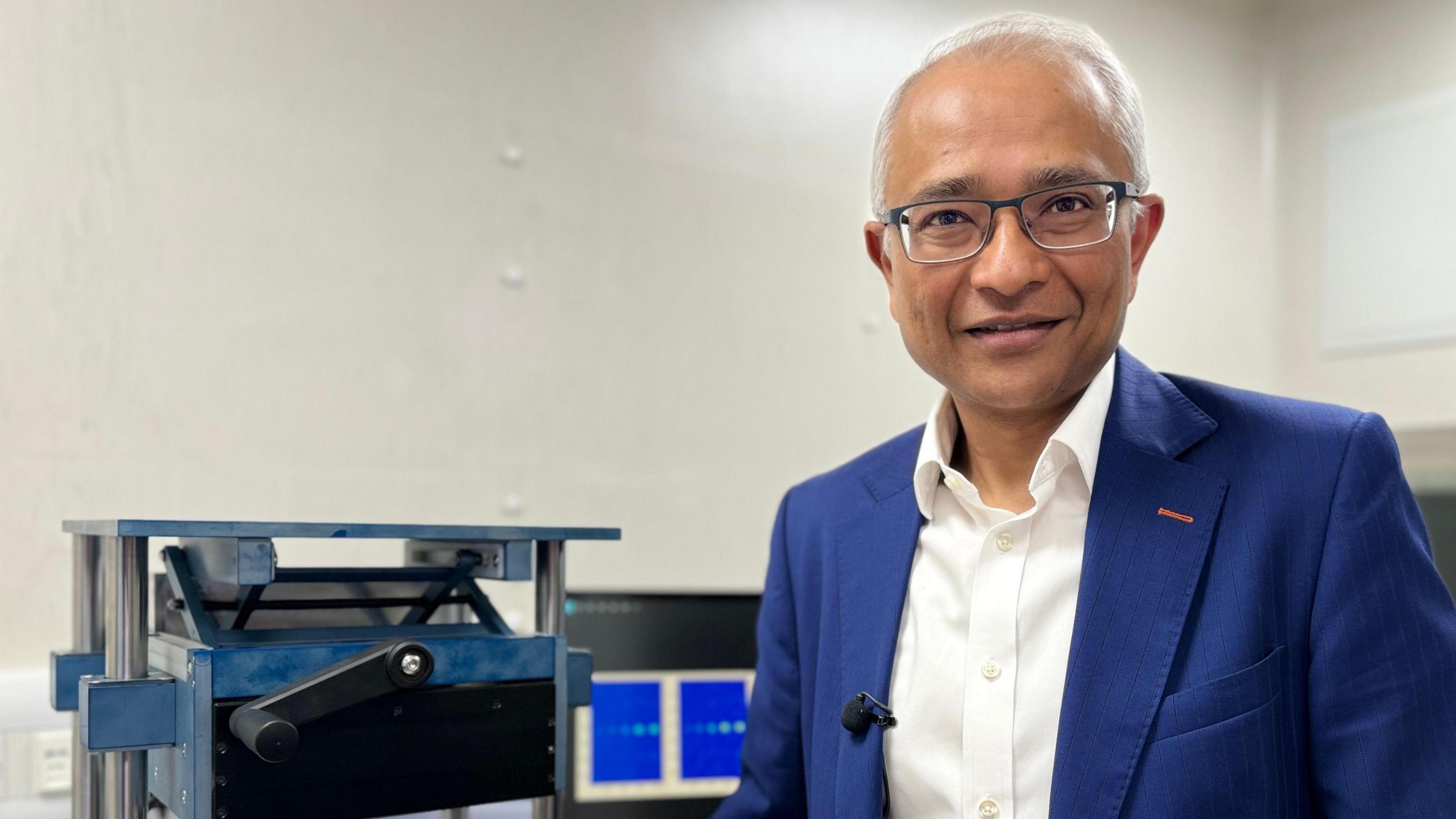
Dr Arnab Basu, who heads Kromek, said the technology allowed "laser focus"
Prototype trials are now under way at Newcastle Hospitals.
Its Northern Medical Physics and Clinical Engineering team is leading on the device regulation, and the National Institute for Health and Care Research HealthTech Research Centre in Diagnostic and Technology Evaluation is also involved.
Prof Kris Thielemans, professor in medical imagine physics at UCL, said the collaboration between teams had "made excellent progress", adding he believed the technology had "considerable potential" for use beyond breast imaging.
The project has received £2.5m from Innovate UK.
It will enter clinical trials once the current phase of prototype testing is completed.
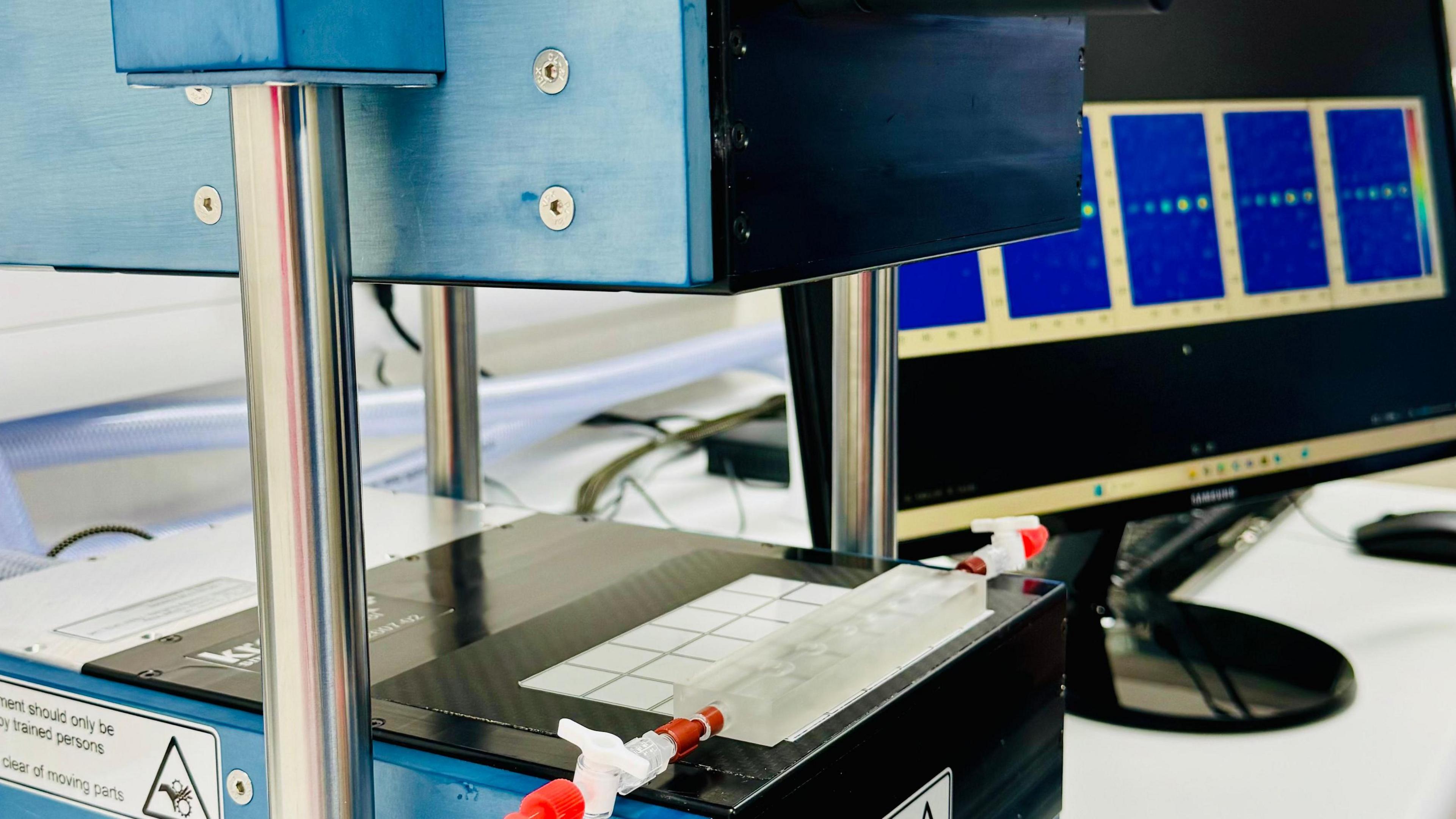
The prototype system uses a radioactive tracer to "light up" cancer in the breast
Breast Cancer Now's Sally Kum said the charity "wholeheartedly" supported the "ongoing research into breast imaging technologies that could improve cancer detection in dense breasts".
Ms Kum said if the government's UK National Screening Committee found that evidence supported a specific approach to measuring breast density and offering alternative imaging for screening women with dense breasts, "we'll push for those changes to be rolled out as quickly as possible across the UK".
She added the charity still encouraged eligible women to attend mammogram screening when invited.
The Department for Health and Social Care said it was set to publish a plan to "fight cancer on all fronts", including improving screening and diagnosis.
A spokesperson said: "Research is being conducted into the use of additional tests for women with dense breasts, as part of the NHS breast screening programme. The UK National Screening Committee is reviewing this evidence as it becomes available."
Follow BBC North East on X, external, Facebook, external, Nextdoor and Instagram, external.
Get in touch
Do you have a story suggestion for BBC Tyne?
- Published25 April 2024
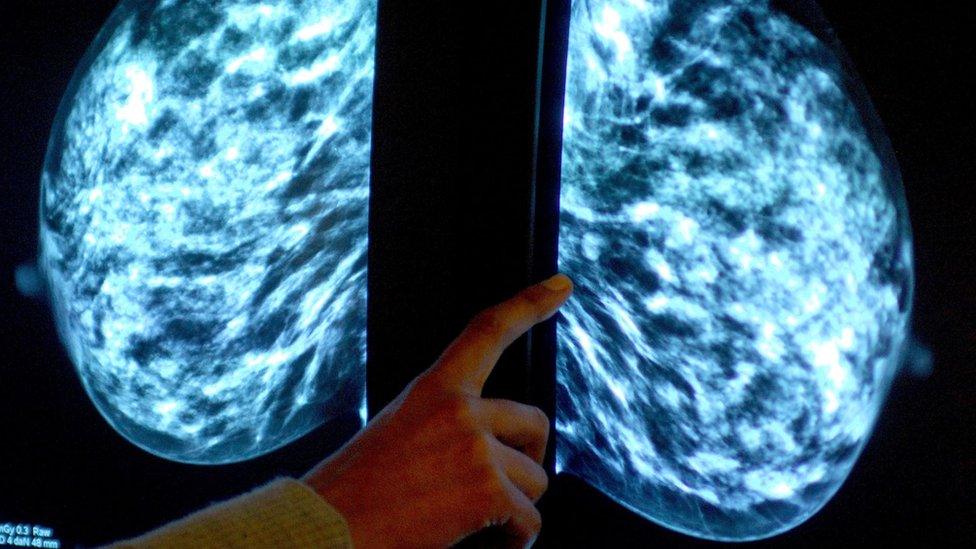
- Published11 April
